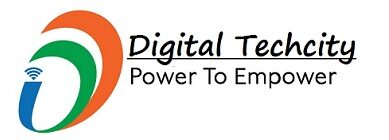The gig economy, characterized by freelancers and remote workers, continues to reshape the way Americans work. Federal figures reveal that 16.5 million U.S. residents are currently engaged in “contingent” or “alternative” employment arrangements, signaling a significant shift in the employment landscape. While some view these changes as empowering, they also raise questions about access and privilege in the workforce. In this article, we delve into the findings from surveys of over 1,000 employees and 291 employers to gain insights into the evolving world of work and how it affects different industries.
Exploring The Evolving Landscape of Work
1. Career Ambitions and Industry Changes
Millennials, often portrayed as job hoppers, aren’t alone in desiring career changes. Approximately 46 percent of millennials expressed a desire to change fields within the next decade. This aspiration for career shifts isn’t limited to millennials, as over a third of Gen Xers share the same ambition. Even a significant portion of baby boomers is looking for second careers or bridge jobs to transition into retirement.
Some industries exhibit a strong desire for change, notably hospitality and wholesale and retail. Surprisingly, 47 percent of technology workers are also seeking career changes, possibly due to the stress and burnout associated with the fast-paced sector. Conversely, public service-oriented fields like education and government seem more settled, as do workers in arts and entertainment and finance and insurance.
2. The Freelancing Frontier
Freelancing is on the rise, especially in certain industries. Workers in arts, entertainment, and information services believe that over 40 percent of their industries already operate on a freelance basis, with expectations that this trend will continue to grow over the next decade. Marketing and technology professionals foresee even more dramatic increases in freelancing. Organization keep track of their time for remote jobs.
However, in some fields like transportation and warehousing, freelancing is expected to remain limited due to automation. Government and public administration professionals also show skepticism about the growth of freelancing in their field, possibly due to higher union membership rates. Medical professionals, despite the increasing virtualization of healthcare, don’t anticipate significant growth in freelancing within their profession.
3. Freelancers and Job Satisfaction
The freelancing experience varies based on how work is obtained. Approximately half of freelancers reported using third-party platforms to secure jobs, according to some researchers. These platforms significantly improve job security, annual income, and work-life balance for freelancers, leading to higher job satisfaction.
Users of third-party platforms also appear more committed to freelancing in the long term, with over half expecting to continue freelancing in a decade. In contrast, freelancers who find gigs independently are less likely to foresee a future in freelancing. However, older workers, a substantial segment of self-employed Americans, often aim for retirement rather than traditional employment upon leaving freelancing.
4. Remote Work Revolution
The possibility of remote work is another transformative aspect of the changing workforce. Experts predict that a third of employees will work remotely in a decade, with implications for company policies. Industries like marketing, information services, finance, and insurance show a high potential for remote work, with over two-thirds of workers believing they can perform their duties from any location.
However, physical service-based industries, such as hospitality, have lower adaptability to remote work. In healthcare, despite the increasing popularity of virtual doctor appointments, only 3 in 10 medical professionals feel they can perform their duties remotely.
Conclusion
The landscape of work is evolving rapidly, with freelancing, remote work, and career transitions becoming prominent features. While these changes offer opportunities for flexibility and independence, they also raise questions about accessibility across industries. Understanding these shifts is crucial for both employees and employers as they navigate the future of work in a dynamic and ever-changing employment landscape.

